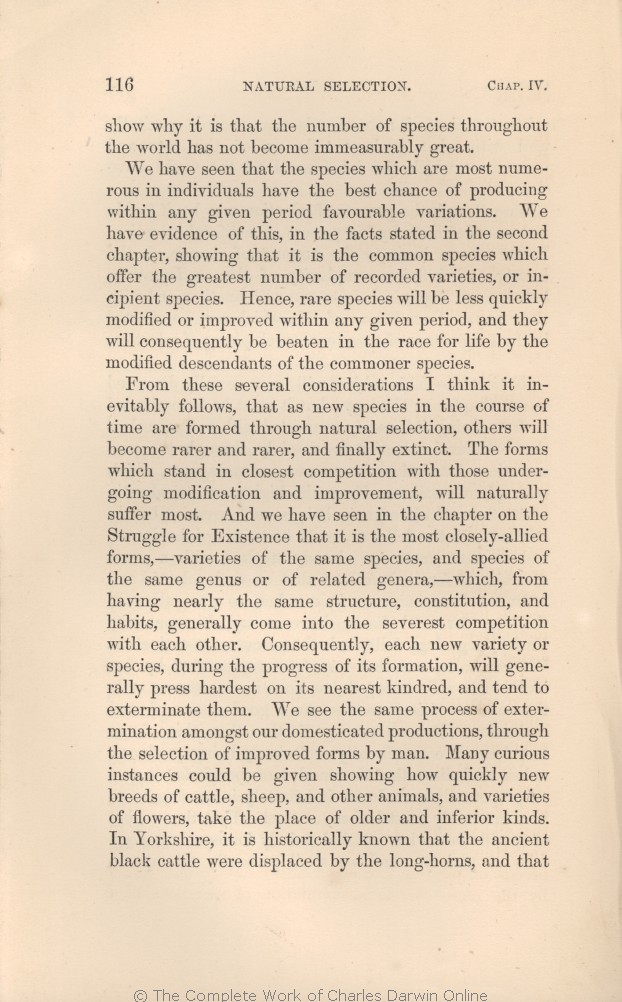the number of
species throughout the world has not become immeasurably great. | species throughout the world has not become immeasurably great. 1861 1866 1869 1872 |
| places in the polity of nature is not indefinitely great,— not that we have any means of knowing that any one region has as yet got its maximum of species. 1859 1860 |
| 1 blocks not present in 1861 1866 1869 1872; present in 1859 1860 | | Probably no region is as yet fully stocked, for at the Cape of Good Hope, where more species of plants are crowded together than in any other quarter of the world, some foreign plants have become naturalised, without causing, as far as we know, the extinction of any natives.
|
|
|
We have seen that | We have seen that 1861 1866 |
| Furthermore, 1859 1860 |
| ..... 1861 1866 | | will 1859 1860 |
| stated 1861 1866 1869 1872 | | given 1859 1860 |
| species which offer 1861 1866 1869 |
| species which afford 1859 1860 |
| and diffused or dominant species which offer 1872 |
| varieties, 1859 1860 1861 1866 1869 | | varieties. 1872 |
| or 1859 1860 1861 1866 1869 | or 1872 |
| incipient 1859 1860 1861 1866 1869 | incipient 1872 |
| species. 1859 1860 1861 1866 1869 | species. 1872 |
| period, 1859 1860 1861 1866 1869 | | period; 1872 |
| and 1859 1860 1861 1866 1869 | and 1872 |
| descendants 1859 1860 1861 1866 1869 |
| and improved descendants 1872 |
|
|
From these several considerations I think it inevitably follows, that as new species in the course of time are formed through natural selection, others will become rarer and rarer, and finally extinct. The forms which stand in closest competition with those
undergoing | undergoing 1859 1860 1861 1869 1872 | | under-going 1866 |
| most. 1859 1860 1861 1869 1872 |
| most. And we have seen in the chapter on the Struggle for 1866 |
| And we have seen in the chapter on the Struggle for 1859 1860 1861 1869 1872 |
| OMIT 1866 |
| other. 1859 1860 1861 1866 1869 | | other; 1872 |
| Consequently, 1859 1860 1861 1866 1869 | | consequently, 1872 |
|









